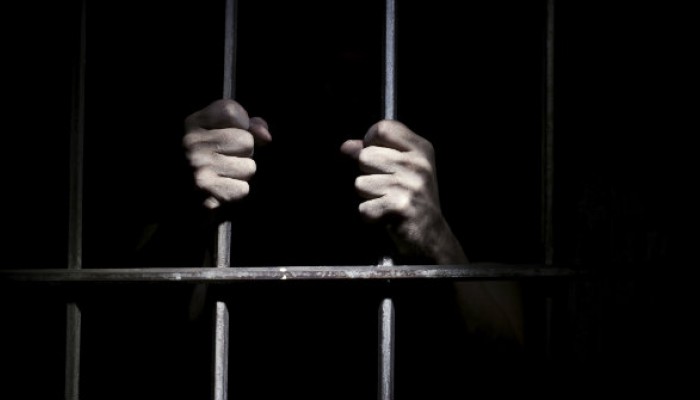When men like Leon Brown and Henry McCollum are exonerated as they were this week in North Carolina, when the extent of the grave injustices undertaken against the mentally disabled is laid bare, I am inevitably asked the following questions by women and men of goodwill who cannot believe that these cases occur with such frequency in a nation that prides itself on its rule of law: what can I do to help? What can I do to help ensure that the next wrongfully convicted person doesn’t languish for decades in prison for crimes he or she did not commit?
Well here is something you can do to help. You can help make sure a good idea takes hold and spreads. Just before the holiday last weekend, something very important happened in New Orleans, something that one day could serve as a model for the rest of the nation. The Orleans Parish district attorney joined with the defenders at the Innocence Project New Orleans to create and promote a project designed to have lawyers for the state and lawyers for criminal defendants work together to identify and resolve wrongful conviction cases before they take years (or decades) to litigate.
The venture is tentatively titled the Joint Conviction Integrity and Accuracy Project and it is based on the simple notion that Louisiana is notorious for its wrongful convictions, the feckless nature of its state judiciary, and the high costs of state compensation for the scores of people who have been exonerated as a result of flawed convictions. Let me be even more basic in describing what is happening here: one brave prosecutor has come to realize that his office can be more efficient, and more just, and more accurate, if it works more closely with defense attorneys to more quickly discover and correct flawed convictions.
The Orleans Parish prosecutor is named Leon Cannizzaro and he deserves all the credit there is for trying something new. For learning something from the wrecked lives of men like Reginald Adams, who was exonerated there in May after serving 34 years for a crime he did not commit, for a crime he was forced to confess to, for a crime police and prosecutors surely knew back then was woefully short of constitutional standards. Here is how the DA and the defenders put it in the release they issued last Thursday, while the nation essentially was still out on vacation:
While the overwhelmingly vast majority of people convicted of serious felony offenses in New Orleans are guilty of the crimes for which they are imprisoned and the conviction was the product of a constitutionally legitimate process, the District Attorney’s office believes that a small number of inmates are either actually innocent of the crimes for which they are serving time or that the legal process that resulted in their conviction contained such serious and fundamental flaws that it cannot be considered constitutionally legitimate and therefore the defendant is entitled to a fair trial.
Public safety is and will remain the primary concern of the District Attorney’s office and District Attorney Cannizzaro remains mindful that wrongful convictions endanger public safety in two ways. First, such cases—irrespective of their very small number—if left uncorrected, will result in a disproportionate level of mistrust of the criminal justice system, causing witnesses, defendants, victims and jurors to approach the process with skepticism and hampering the ability of the District Attorney to effectively prosecute cases. Second, in such cases where the imprisoned person is actually innocent, the true perpetrator of the crime has not been caught and punished and is often free to commit more crimes.
These are bold words—but words like these have been uttered by prosecutors before, in public, right before those same prosecutors then seek to delay or even subvert justice in individual cases. That is not what is supposed to happen here. Instead, the two sides in the eternal war over criminal justice have come up with a procedure to 1) identify those cases where shaky convictions deserve a closer look; 2) evaluate whether the results of those cases are so manifestly unjust that there should be joint action to rectify them, and; 3) urge the courts to do something about it.
The prosecutors who are part of this dynamic will not agree with the defense attorneys in each instance. There surely will be cases that still have to go through Louisiana’s dubious justice systems. But if even one man’s life is spared as a result of the new Project, if even one wrongfully convicted man is released from prison just one day earlier than he otherwise would have been, this experiment will be a success. It’s a sign, Emily Maw of the Innocence Project told me Thursday, of growing trust between the two sides, of a growing awareness that the cases the defenders are bringing are not frivolous and that the prosecutors who are looking at these cases are not reflectively dismissing them.
This is all a good thing. How can you help? The project needs funding, both public and private, and both Maw and Cannizzaro have not been shy about asking for it. So all you earnest people out there, all of you organizations looking to fund projects that seek “solutions” to the many problems within criminal justice, here is your chance to do something real to make a difference in the lives of the next Henry McCollum, the next Leon Brown, the next Reginald Adams, who we all know are out there just waiting for justice to one day come to them.
The views expressed are the author’s own and not necessarily those of the Brennan Center for Justice.
(Photo: Thinkstock)



